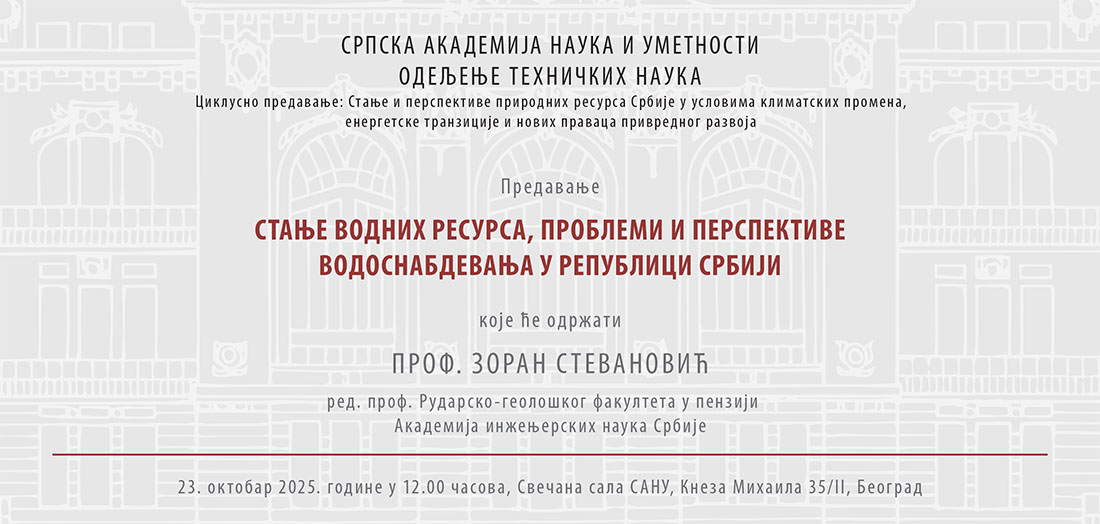Lecture ’State of water resources, problems and prospects of water supply in the Republic of Serbia’
As part of the lecture series ’Current State and Perspectives of Natural Resources of Serbia in the Era of Climate Change, Energy Transition and New Directions of Economic Development’, Zoran Stevanović, PhD, a professor ret. at the Faculty of Mining & Geology, University of Belgrade, gave a lecture titled ’State of water resources, problems and prospects of water supply in the Republic of Serbia’ on Thursday, 23 October, at the SASA Grand Hall.
While only about 10% of the Serbian population was connected to centralized drinking water supply systems until the 2nd World War, by the end of the 1970s this percentage had grown to over 70%, with about 90% of the resources used being groundwater. A similar concept of the priority of groundwater in relation to surface water was represented in all the republics of the former SFRY and was not accidental. It followed the experiences of other developed countries and especially SFRY western and northern neighbors. Sufficient amounts of water, protected from direct pollution or atmospheric influences, and under natural purification conditions in the ground, represented a more rational, cheaper and faster way to meet the needs that grew in accordance with more intensive urbanization and industrialization. From the end of the 1970s, the trend of substituting groundwater by surface water began, and the proposal to build over 50 surface water reservoirs was promoted. To date, with the introduction of Sava River water to supply the citizens of Belgrade and the construction of several large reservoirs, the percentage of groundwater in the water supply has dropped to around 65%. During that time, the situation in the European Union has not changed, and most countries still utilize groundwater from different aquifer systems as a priority for potable water.
The lecture examined whether the construction of all reservoirs was justified, and whether it is still rational to advocate the construction of reservoirs as sources of drinking water in the existing national strategies and management plans. It also addressed the correlation between available water resources and water demand, the current and necessary monitoring to assess pressures (both quantitative and qualitative) on groundwater resources, aspects of water quality and protection, the impact of climate change, possible solutions for regulating the water regime, as well as the need to reserve and preserve the most valuable water sources in Serbia.

